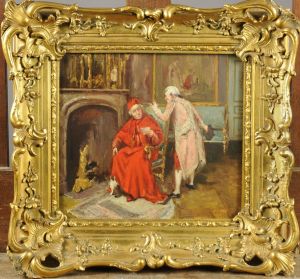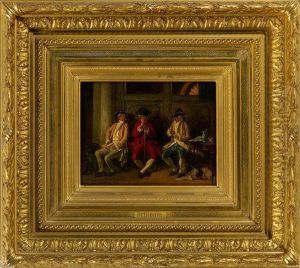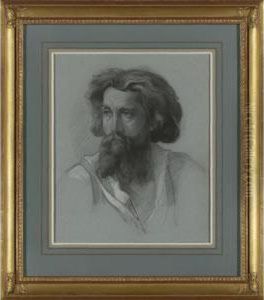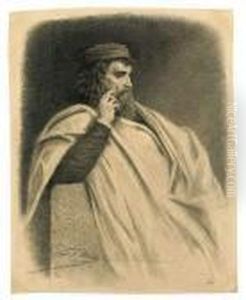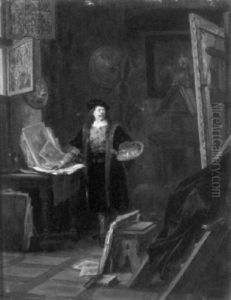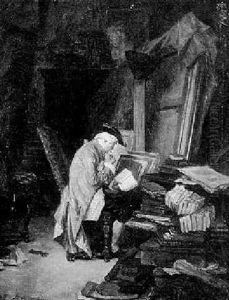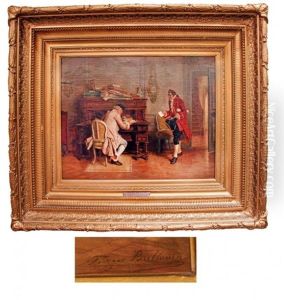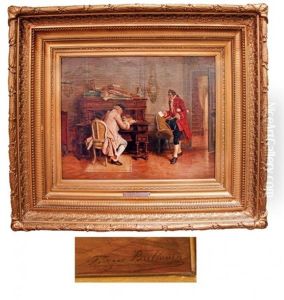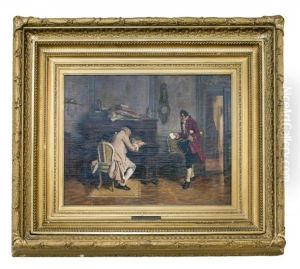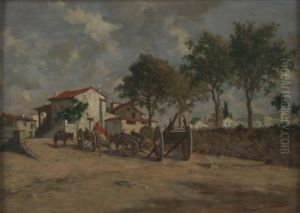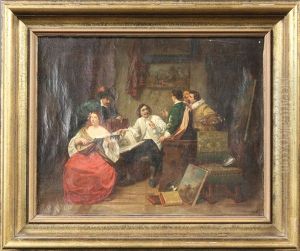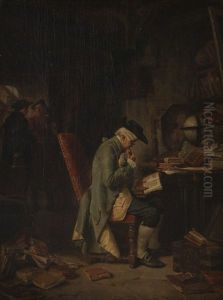Louis Georges Brillouin Paintings
Louis Georges Brillouin was a French physicist who made significant contributions to the field of quantum mechanics and solid-state physics. Born on August 7, 1889, in Séailles, France, he was highly regarded for his research on the propagation of waves in solids and the theory of electronic states in crystals.
Brillouin studied at the École Normale Supérieure in Paris, where he was influenced by some of the most prominent scientists of his time. He started his career in physics by working on the propagation of electromagnetic waves in cables and the theory of the ionosphere's influence on radio wave propagation.
During his early career, he was a contemporary of other great physicists like Louis de Broglie and Erwin Schrödinger, and his work often intersected with theirs. Brillouin's contributions to physics include the development of what is now known as Brillouin scattering, a process that occurs when light interacts with density fluctuations in a medium, such as sound waves.
He also introduced the Brillouin zone concept in solid-state physics, which is crucial for understanding the electronic properties of materials. His work on wave propagation led to the formulation of Brillouin's theorem, which is used in the field of quantum mechanics.
Despite the interruption of his scientific work due to the two World Wars, Brillouin continued to be a productive and influential scientist throughout his life. He spent part of his career in the United States, where he worked at institutions such as the College de France and the Sorbonne.
Louis Georges Brillouin passed away on October 4, 1969. His legacy in physics, particularly in the study of wave propagation and quantum mechanics, remains influential. His name lives on in the concepts and phenomena he described, which continue to be fundamental in the fields of solid-state physics and materials science.



